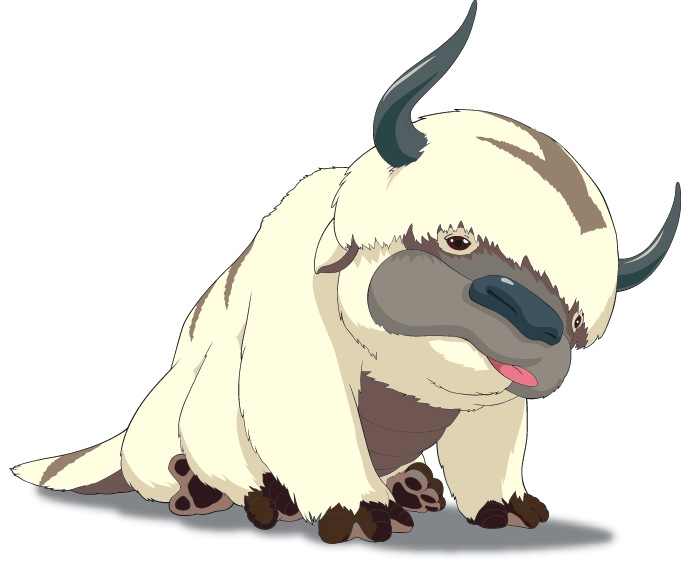Unpacking "Appa" In Korean Language: More Than Just A Word For Dad
When you hear "APPA," your mind might first go to organizations like the Association of Physical Plant Administrators, offering resources and learning programs, or perhaps the Asia Pacific Privacy Authorities, a forum for privacy experts. These groups, you know, do important work, sharing best practices and fostering collaboration, as seen with their recent anonymization guide and Privacy Awareness Week initiative. But today, we're actually going to explore a completely different "appa"—a word that carries a very special and heartfelt meaning in the Korean language.
This "appa" isn't about professional networks or data protection guidelines. Instead, it’s a simple yet incredibly powerful term, one that many people around the world have come to recognize, especially through the widespread popularity of Korean dramas and K-pop. It’s a word that, basically, speaks volumes about family connections and deep affection.
So, if you’ve ever wondered what "appa" truly means when you hear it spoken in a Korean show, or if you're just curious about how families express love and respect in Korea, you're in the right spot. We’re going to look at this word, its pronunciation, and its place in Korean culture, giving you a full picture of its significance.
Table of Contents
- The Heart of "Appa" in Korean Culture
- Using "Appa" in Everyday Korean Life
- The Deeper Meaning: Family Bonds and Respect
- Frequently Asked Questions About "Appa"
- A Final Thought on "Appa"
The Heart of "Appa" in Korean Culture
"Appa" (아빠) is the Korean word for "dad" or "father." It’s a term of endearment, generally used by children to address their fathers, or by adults when speaking about their own fathers in a more casual, affectionate way. This word, you know, carries a warmth and closeness that is pretty unique.
It’s not just a label; it's a sound that evokes images of comfort, protection, and the special bond between a parent and child. In Korean society, family ties are, in a way, very strong, and the father often plays a central role as the head of the household, providing for and guiding his family. "Appa" reflects this connection, often implying a sense of security and love.
When a child calls out "Appa!" it's often a request for attention, comfort, or just a simple acknowledgment of their father's presence. It’s a word, too, that transcends age; even grown adults might use "appa" when talking to or about their fathers, especially in private family settings, to show their continuing affection and respect.
Pronunciation and Sounding It Out
Pronouncing "appa" is, basically, quite straightforward for English speakers. It sounds very much like the English word "papa" but with a slightly stronger emphasis on the first syllable and a double 'p' sound, which is common in Korean for added emphasis. The "a" sound is like the "a" in "father."
So, you know, think "ah-ppah." The double 'p' (ㅃ) in Korean is a "tense" consonant, meaning you say it with a bit more force, almost as if you’re holding your breath slightly before releasing the sound. It's not a soft 'p' like in "paper." This slight tension gives the word its distinct Korean feel.
Practicing it a few times, saying "ah-ppah" with that little extra push on the 'p' sound, will help you get it just right. It's almost, in a way, like a small explosion of air when you say the double 'p', which is something you'll notice often in Korean pronunciation.
"Appa" vs. "Aboji": Understanding the Nuances
While "appa" is a widely used term for "dad," you might also hear "aboji" (아버지). Both mean "father," but their usage carries slightly different implications, you know. "Appa" is more affectionate and informal, typically used within the family or when speaking casually.
"Aboji," on the other hand, is a more formal and respectful term. It's used when addressing one's father in a more traditional or formal setting, or when speaking about someone else's father, particularly if you want to show a higher degree of deference. It’s also the general term you'd use if you were, say, referring to "father" in a broader sense, like "the fathers of the nation."
Think of it like this: "Appa" is akin to "Dad" or "Daddy" in English, while "Aboji" is closer to "Father." A child would naturally call their parent "appa," but if they were giving a speech about their parent at a formal event, they might use "aboji" to show appropriate respect. The choice between the two, you see, really depends on the context and the level of formality or closeness you want to express.
Using "Appa" in Everyday Korean Life
In daily Korean life, "appa" is heard everywhere. Children use it from a very young age, and it remains a common way to address fathers throughout their lives, especially within the home. It’s a word that, basically, represents the warmth of family relationships.
You’ll hear it in casual conversations, during family meals, and when children are playing. It’s a natural part of family communication, often accompanied by gestures of affection or requests. For example, a child might say, "Appa, juseyo!" (아빠, 주세요!) meaning "Dad, please give me!" or "Appa, saranghaeyo!" (아빠, 사랑해요!) for "Dad, I love you!"
Even adult children, you know, might use "appa" when talking to their fathers on the phone or during family gatherings. It signifies a continued bond of affection and comfort that might be lost with a more formal term. It's a word that, in some respects, keeps the parent-child relationship feeling very close, even as children grow older.
"Appa" in K-Dramas and Pop Culture
The global rise of K-dramas and K-pop has introduced "appa" to millions of people outside of Korea. It's a word that, quite often, becomes one of the first Korean terms international fans pick up, simply because it's used so frequently in family-focused storylines.
In K-dramas, you’ll hear characters, both young and old, calling out "appa" in moments of joy, sadness, or desperation. This widespread exposure has made the word recognizable, and it helps viewers connect emotionally with the characters and their family dynamics. It really is, you know, a key part of how these stories unfold.
Sometimes, too, K-pop idols might refer to their own fathers as "appa" in interviews or social media posts, further popularizing the term. This exposure has cemented "appa" as a recognizable and, frankly, beloved part of Korean language for many fans worldwide. It's almost like a small window into Korean family life.
When to Use "Appa" (and When Not To)
Knowing when to use "appa" is, actually, pretty simple. Use it when you are addressing your own father, or when you are speaking about your own father in an informal setting. It's a term that conveys warmth and closeness, so it's perfect for family interactions.
However, you should generally avoid using "appa" when referring to someone else's father, especially if you don't know them well or if the situation is formal. In those cases, "aboji" is the more appropriate and respectful term. For example, you wouldn't typically say "Your appa is here" to a friend's parent you just met; you'd use "Your aboji."
Also, if you're speaking to a Korean person who is much older than you and you don't know their family status, it's best not to assume and use "appa." It's a word that, basically, belongs within the intimate circle of a family. Using it incorrectly might be seen as overly familiar or, you know, a bit strange. Learn more about Korean language basics on our site.
The Deeper Meaning: Family Bonds and Respect
The word "appa" goes beyond its literal meaning. It's deeply tied to the cultural values of family, respect, and hierarchy in Korea. While it is an affectionate term, it still carries an underlying respect for the father's position within the family structure. This is, you know, a very important aspect of Korean culture.
In traditional Korean society, the father is often seen as the pillar of the family, responsible for its well-being and moral guidance. The term "appa," even in its casualness, subtly acknowledges this role. It's a way children show both love and an inherent understanding of their parent's authority and care.
This dynamic is quite different from some Western cultures where terms for "dad" might carry less formality. In Korea, even affectionate terms are, in a way, woven into a broader fabric of societal respect for elders and family heads. It's a word that, in some respects, bridges the gap between deep affection and traditional deference.
The bond with "appa" is often portrayed as one of quiet strength and enduring support. Fathers might not always express their feelings overtly, but their actions of providing and protecting are, frankly, understood as profound expressions of love. So, when a child says "appa," it's a recognition of all these unspoken contributions and sacrifices.
This cultural context makes "appa" a truly rich word. It's not just a sound; it's a feeling, a relationship, and a reflection of core Korean values. Understanding this depth helps you, you know, appreciate the nuances of Korean communication and family life.
Frequently Asked Questions About "Appa"
Is "Appa" informal?
Yes, "appa" is generally an informal and affectionate term. It's primarily used by children to address their own fathers, or by adults when speaking about their own fathers in a casual, warm manner. It's not typically used in formal settings or when referring to someone else's father, where "aboji" would be more suitable. It's, you know, a word for close family ties.
What's the difference between "Appa" and "Aboji"?
The main difference lies in their level of formality and affection. "Appa" (아빠) is the informal, affectionate term for "dad," similar to "Daddy" or "Pop." "Aboji" (아버지) is the more formal and respectful term for "father." While both mean "father," "aboji" is used in more formal situations, or when referring to someone else's father. It's a bit like the distinction between "Dad" and "Father" in English, you know.
How do Koreans use "Appa" in daily life?
Koreans use "appa" very commonly in daily family life. Children will call out "appa" to get their father's attention, ask for things, or express affection. Adults also use it when talking directly to their own fathers, especially in private or casual family settings, to maintain a sense of closeness and warmth. It's a word that, basically, weaves into the fabric of everyday family interactions, often showing love and comfort. You can learn more about Korean family terms.
A Final Thought on "Appa"
The word "appa" in Korean language is, truly, a simple yet profound term. It’s a sound that carries the weight of family bonds, the warmth of affection, and the respect inherent in Korean culture. From the casual cries of a child to the quiet acknowledgment of an adult, "appa" speaks volumes about the enduring connection between a father and his children. Understanding this word gives you, you know, a richer appreciation for Korean family life and its deeply rooted values.

Appa - appa Photo (31491770) - Fanpop

APPA Files Comments in EPA Water Quality Certification Open Docket

'Appa' Poster, picture, metal print, paint by Avatar: The Last